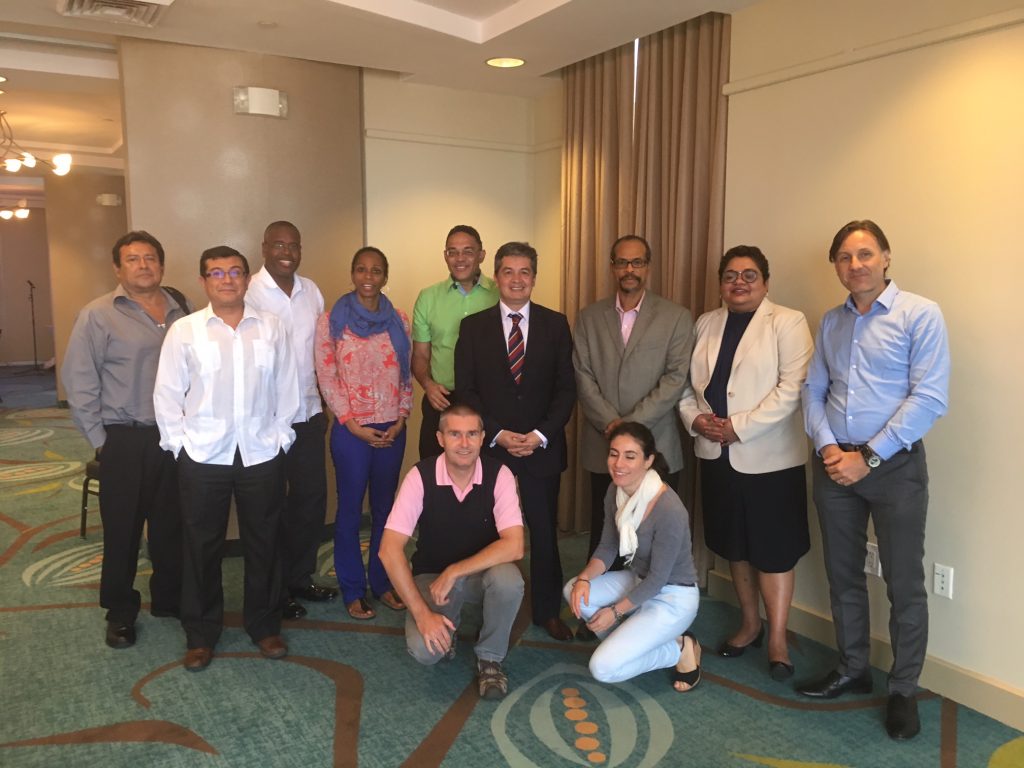Eight Inter-Governmental Organizations (IGO’s): UN Environment Caribbean Environment Programme (UN Environment CEP); Western Central Atlantic Fisheries Commission of the UN Food and Agriculture Organisation (FAO-WECAFC); Intergovernmental Oceanographic Commission (IOC/IOCARIBE) of UNESCO; Caribbean Community (CARICOM) Secretariat; Caribbean Regional Fisheries Mechanism (CRFM); Central American Commission for Environment and Development (CCAD); Organisation of the Central American Fisheries and Aquaculture Sector (OSPESCA); and the Commission of the Organisation of Eastern Caribbean States (OECS) met from 25-26 May in Miami in a meeting facilitated by the CLME+ Project.

Participants discussed opportunities for enhanced cooperation and coordination for sustainable fisheries and the protection and sustainable use of the marine environment within the CLME+ region.
Meetings of this grouping of 8 respond to the call made under the 10-year CLME+ Strategic Action Programme to establish an Interim Coordination Mechanism (CLME+ SAP ICM) for sustainable living marine resources governance.
Since the commencement of the CLME+ Project in 2015, these organizations, constituting the “de facto” SAP ICM, have met three times to advance opportunities for enhanced coordination of actions on the marine environment.
During the meeting, participating organizations took the opportunity to finalize the Memorandum of Understanding (MoU) which will formally establish this coordination mechanism, and for which the CLME+ PCU will initially serve as the Secretariat.
The meeting also discussed and revised the proposed Terms of Reference for the “Global Partnership for the Sustainable Management, Use and Protection of the Marine Environment of the CLME+ region” (the “CLME+ Partnership”), which will seek to link the many different efforts and initiatives on the marine environment in the region, and which will have the ICM as its coordinating entity.
It is now expected that both the CLME+ SAP ICM and CLME+ Partnership will become formally established in the coming months.
The process towards identifying a Permanent Policy Coordination Mechanism for improved marine resources governance in the CLME+ region, a key expected output under the CLME+ SAP, was also addressed during the meeting. The meeting again stressed the importance of providing CLME+ countries with leadership in the selection process for the most adequate format for this mechanism.
Other topics on the agenda of the two day meeting included the status of CLME+ SAP Monitoring and Evaluation, the “State of the Marine Environment and Associated Economies” (SOMEE) Reporting Mechanism, and the UN Oceans Conference.


